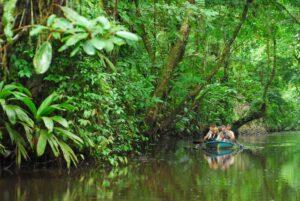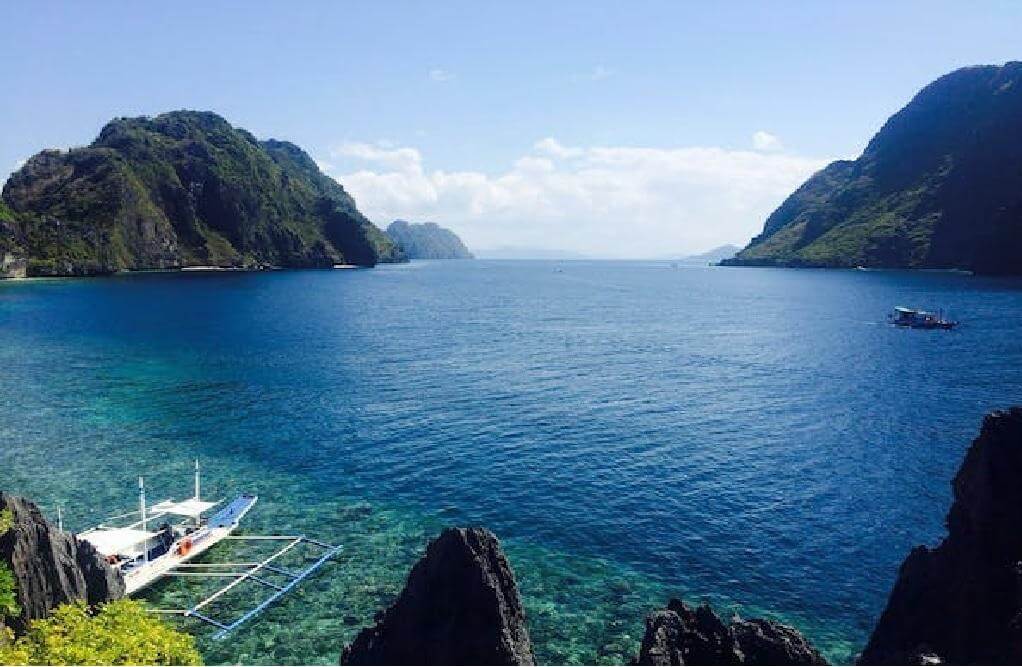
I. Introduction:
Ecotourism, a form of responsible travel, has gained significant attention since the 1980s as an essential endeavor for environmentalists and nature enthusiasts alike.
Ecotourism encompasses sustainable practices and ecotourism initiatives. It aims to conserve the environment, improve the well-being of local communities, and offer travelers unique insights and experiences. The primary objectives of ecotourism are multifaceted, encompassing educational, conservation, economic, and cultural aspects.
This article “Sustainable Practices and Ecotourism Initiatives: A Path Towards Responsible Travel”, will enable the readers to discover the power of sustainable practices and ecotourism initiatives in safeguarding natural beauty and promoting responsible travel and how governments can enforce policies for brighter and more eco-friendly tourism industry in 2024.
A . Definition of Ecotourism:
Ecotourism:
- Responsible travel to natural areas with a focus on sustainability.
- Emphasizes sustainable transport and practices.
- Aims to minimize environmental impact while providing educational opportunities.
- May involve conserving natural resources, supporting local communities, and promoting cultural understanding.
B. Objectives of Ecotourism:
- Educate travelers about the environment and natural habitats.
- Foster appreciation for the impact of human activities on nature.
- Generate funds for ecological conservation and preservation.
- Provide financial support for protecting natural areas.
- Contribute to the economic development of local communities.
- Create sustainable livelihoods and income opportunities for locals.
- Empower local communities politically.
- Promote cultural respect and human rights.
- Encourage engagement with different cultures and traditions.
By embracing ecotourism, individuals can embark on a journey of sustainable exploration, discovering the beauty of natural environments while actively contributing to their preservation and the well-being of local communities.
II. Principles of Ecotourism with Sustainable Practices
A. Responsible Travel and Sustainable Transport:
- Emphasizes responsible travel practices.
- Uses sustainable transportation methods.
- Minimizes carbon emissions and environmental impact.
- Prefers eco-friendly modes like walking, cycling, or public transportation.
- Promotes the use of renewable energy sources for transport.

B. Conservation of Natural Areas:
- The primary goal is to conserve natural areas.
- Protects and preserves fragile ecosystems and biodiversity.
- Supports sustainable land use practices.
- Minimizes habitat disturbance.
- Engages visitors in conservation efforts through education and participation.
C. Well-being of Local Communities:
- Aims to improve the well-being of local communities.
- Provides socio-economic benefits to locals.
- Empowers local people and involves them in tourism activities.
- Ensures locals receive a fair share of economic benefits.
- Initiatives include community-based tourism, local employment, and capacity building.
D. Cultural Respect and Human Rights:
- Emphasizes respect for different cultures.
- Promotes cross-cultural understanding and appreciation.
- Preserves cultural heritage and traditions.
- Respects the rights and dignity of local communities, including indigenous peoples.
- Supports their self-determination and participation in tourism development decisions.
Overall, ecotourism seeks to create a positive and sustainable relationship between tourism, nature, and local communities.
III. Sensitizing People to Nature’s Beauty and Fragility

Sensitizing people to nature’s beauty and fragility is considered the true essence of ecotourism. While the concept of ecotourism has gained popularity, there is criticism regarding greenwashing practices associated with it.
A. True Essence of Ecotourism:
- Educates and sensitizes individuals about nature’s beauty and fragility.
- Involves responsible travel to conserve the environment and benefit local communities.
- Aims to minimize the negative impacts of conventional tourism.
- Promotes sustainable practices and cultural integrity.
- Immerses travelers in natural environments for firsthand experiences.
- Includes interpretive activities, guided tours, and educational initiatives.
- Cultivates appreciation and respect for nature.
B. Criticism of Greenwashing Practices:
Greenwashing refers to the misleading use of “green” or “eco-friendly” labels by tourism operators who do not genuinely prioritize sustainability. This practice undermines the credibility and effectiveness of ecotourism.
- Some operators may not genuinely follow environmentally responsible practices.
- Emphasis on ensuring ecotourism initiatives go beyond superficial marketing.
- Advocates for genuine efforts in environmental impact reduction and supporting local communities.
- Encourages transparency and accountability among operators.
- Preservation of ecotourism’s integrity and true essence is crucial.
In general, sensitizing people entails educational opportunities that seek to help understand ecological challenges and motivate people to take on leadership roles in the environment. Greenwashing tactics serve as a reminder of the necessity for the ecotourism sector to truly commit to sustainability and conservation.
IV. Benefits of Ecotourism Initiatives for Conservation
The benefits of ecotourism for conservation are dependent on careful planning, stakeholder engagement, and the strategic use of generated revenue. Ecotourism along with the intention of sustainability, can play a significant role in protecting natural areas.
A. Factors Determining Conservation Outcome:

Ecotourism can have several benefits for conservation efforts. One of the key factors determining the conservation outcome is the careful planning and management of ecotourism activities. Here are some ways in which ecotourism can contribute to conservation:
Preservation of Natural Areas:
- Ecotourism focuses on visiting and experiencing natural areas.
- Creates an incentive to conserve and protect untouched and pristine environments.
- Encourages preservation of biodiversity-rich habitats like rainforests, coral reefs, and national parks.
Economic Value of Conservation:
- Ecotourism provides economic incentives for local communities and governments to protect natural resources.
- Revenue from ecotourism activities can fund conservation initiatives.
- Supports habitat restoration, anti-poaching efforts, and wildlife monitoring programs.
- Demonstrates that conservation efforts can be economically viable.
- Shifts perception away from exploiting nature solely for resource extraction.
Public Awareness and Education:
- Ecotourism offers opportunities for education and raising environmental awareness.
- Tourists gain a better understanding of conservation’s importance and the need to protect fragile ecosystems.
- Increased awareness leads to behavior changes and support for conservation efforts.
- Benefits both local and global conservation initiatives.
B. Collaboration and Stakeholder Engagement:
Effective conservation through ecotourism requires collaboration and engagement with various stakeholders. Here’s how these factors play a role:
Involvement of Local Communities:
- Engaging and involving local communities in ecotourism initiatives is crucial for success.
- Empowering locals in decision-making processes and providing economic benefits.
- Promotes sustainable conservation efforts and long-term protection of natural resources.
- Fosters a sense of ownership and responsibility within the community.
Cooperation with Conservation Organizations:
- Ecotourism operators collaborate with conservation organizations and researchers.
- Ensures activities align with conservation goals and best practices.
- Supports scientific research and monitoring programs for biodiversity and ecosystem protection.
- Strengthens efforts toward the preservation of natural environments.
C. Effective Use of Ecotourism Revenue:
The revenue generated from ecotourism can be used strategically to maximize conservation impact. Here are some approaches:
Investment in Conservation Initiatives:
- A portion of ecotourism revenue should be dedicated to conservation efforts.
- Funding research projects, supporting local conservation organizations, and anti-poaching measures.
- Investing in habitat restoration and protection for the long-term sustainability of natural areas.
Community Development:
- Ecotourism revenue can improve the livelihoods of local communities.
- Provides alternative income sources to reduce dependence on harmful activities.
- Includes capacity building, education, healthcare, and infrastructure development.
- Creates sustainable livelihood opportunities for locals.
Monitoring and Enforcement:
- Effective management of ecotourism sites requires resources for monitoring and enforcement.
- Allocate funds to monitor visitor activities and enforce regulations.
- Mitigate potential negative impacts on the environment.
- Contribute to the long-term sustainability and conservation of visited areas.
V. Regulation and Accreditation in Ecotourism Initiatives
Regulation and accreditation play a crucial role in ensuring the integrity and sustainability of ecotourism practices. However, poor implementation of regulations and the prevalence of greenwashing and ineffective practices pose significant challenges to the tourism industry.
On the other hand, small-scale, locally based ecotourism emerges as an important alternative that promotes sustainability and benefits local communities. Here is a breakdown of the key points for each topic:
A. Challenges with Poor Implementation:
Poor implementation of regulations in ecotourism can undermine its core principles and lead to negative impacts on the environment and local communities. Some challenges include:
Lack of enforcement:
In many cases, there is a lack of enforcement agencies or systems of punishments to hold operators accountable for their actions. This allows unsustainable ecotourism projects to continue without facing consequences for their negative impacts.
Insufficient Planning and Management:

- Inadequate planning and management can lead to problems in ecotourism.
- Poor infrastructure planning can result in overcrowding at natural sites.
- Tourist capacity mismanagement may lead to environmental degradation.
- A lack of proper ecological conservation efforts can lead to resource exploitation.
Unintended Negative Consequences:
- Despite positive intentions, ecotourism can have unintended negative effects.
- Increased pressure on local resources due to tourist influx.
- Creation of additional infrastructure to accommodate tourists.
- Generation of waste and pollution associated with tourism activities.
B. Greenwashing and Inner Points:
Lack of Sensitization:
- Some operators focus on creating destinations without genuinely raising awareness about nature.
- Failure to sensitize visitors to the beauty and fragility of natural areas.
- This approach does not promote true ecotourism values and principles.
Lack of Transparency:
- Greenwashing confuses the environmental practices of operators.
- Makes it difficult for tourists to distinguish between genuinely sustainable options and irresponsible ones.
- Lack of transparency undermines the credibility of ecotourism efforts.
Need for Accreditation:
- Effective accreditation programs and certifications are essential in combating greenwashing.
- Ensures ecotourism operators meet specific sustainability, community benefit, and conservation standards.
- Helps establish trust and authenticity in ecotourism initiatives.
C. Importance of Small-Scale, Locally-Based Ecotourism:
Small-scale, locally-based ecotourism offers an alternative approach that emphasizes sustainability and benefits local communities. Key points include:
Community Involvement:
- Locally based ecotourism projects prioritize active participation and engagement of local communities.
- Local communities are involved in decision-making processes.
- Economic benefits remain within the community, fostering community ownership and empowerment.
Conservation-oriented:
- Small-scale operations focus on conserving the environment and its resources.
- Minimize negative impacts on the natural and cultural heritage of the destination.
- Emphasize responsible and sustainable practices to protect the environment.
Social and Economic Benefits:
- Locally-based ecotourism contributes to community stability and well-being.
- Generates economic opportunities and provides employment for local residents.
- Supports local businesses and services, strengthening the local economy.
Thus, the challenges associated with poor implementation of regulations and the prevalence of greenwashing and ineffective practices pose significant hurdles to the success of ecotourism.
However, embracing small-scale, locally-based ecotourism can provide a more sustainable and community-focused approach that benefits both the environment and the local populations.
VI. Economic Opportunities and Environmental Issues
The goal should be to establish a balance between prospects for economic growth and the preservation of the environment and culture.
A. Contributions to Local Communities:
- Ecotourism generates economic opportunities for local communities.
- Tourist spending on accommodations, food, and transportation benefits the local economy.
- Revenue can lead to job creation, improved infrastructure, and enhanced services.
- Local communities take ownership of ecotourism initiatives, empowering them.
B. Negative Impacts on Indigenous People:
- Ecotourism can exploit and marginalize indigenous communities.
- Traditional lands turned into ecotourism destinations may lead to displacement.
- Loss of cultural heritage and limited access to resources can occur.
- Equitable benefits for indigenous communities should be ensured.
C. Cultural Commercialization and Loss:
- Ecotourism can commodify local cultures for tourist consumption.
- Leads to loss of authenticity and erosion of traditional practices.
- Cultural sensitivity and respect are important to avoid commodification.
- Local communities should retain control over their cultural heritage.
D. Need for Sustainable and Locally Managed Ecotourism:
- Emphasizes involvement of local communities in planning and management.
- Empowers stakeholders, including indigenous communities, in decision-making.
- Prioritizes environmental and cultural considerations.
- Promotes sustainable practices and economic opportunities for locals.
- Education and awareness programs foster environmental stewardship.
VII. Negative Impacts of Ecotourism
Ecotourism, despite its noble intentions, can have negative impacts on both the environment and local communities. Here are some of the main concerns associated with ecotourism:
A. Failure to Meet Standards and Guidelines:
- Challenge: Failure to meet established standards and guidelines in ecotourism.
- Certifications and labels exist to differentiate companies based on environmental commitment.
- Many projects fall short, undermining the credibility of legitimate ecotourism companies.
B. Transformation of Nature into Commodities:
- Challenge: Ecotourism can turn nature into commodities.
- Economically valuable natural sites may be privatized, reducing government funding.
- A shift towards profit focus may compromise environmental and social sustainability.
C. Environmental Degradation and Pollution:
- Challenge: Ecotourism can contribute to environmental degradation and pollution.
- Tourist infrastructure development disrupts ecosystems and leads to habitat destruction.
- Tourist traffic causes pollution from waste disposal and increased energy consumption.
D. Economic Benefits vs. Social and Environmental Harms:
- Challenge: Ecotourism brings economic benefits but may cause social and environmental harm.
- Profits may go to multinational corporations or foreign investors, not benefiting local communities.
- Wealth disparities, labor exploitation, and limited reinvestment in the local economy can occur.
- Conflicts over land and resource control may arise, and traditional cultures may be disrupted.
It is crucial to recognize and address these negative impacts to ensure that ecotourism truly achieves its goals of environmental conservation, community empowerment, and cultural respect.
Effective management strategies, strict adherence to guidelines and standards, and active involvement of local communities and authorities can help mitigate these concerns and promote sustainable and responsible ecotourism practices.
VIII. Who Benefits from Ecotourism Initiatives?
Ecotourism is often promoted as a sustainable and responsible form of tourism that benefits the environment and local communities. However, there are several aspects to consider regarding who actually benefits from ecotourism.
A. Ownership by Foreign Investors and Corporations:
- Criticism: Ecotourism ventures are often owned and controlled by foreign investors and corporations.
- Profit-making is prioritized over the well-being of local communities and the environment.
- Economic benefits are not equitably distributed among local people.
B. Limited Economic Opportunities for Local People:
- Ecotourism has the potential to create economic opportunities for locals, but limitations exist.
- Local people are often relegated to low-wage and menial jobs with little upward mobility.
- Limited economic benefits perpetuate income disparities and social inequalities.
C. Resentment and Environmental Degradation:
- The presence of ecotourism can lead to resentment among local communities.
- Issues like unfair compensation, displacement from traditional lands, or lack of economic opportunities outside tourism.
- Resentment may result in environmental degradation as a reaction to perceived injustices.
D. Development of Destructive Markets:
- Concern with ecotourism: Development of destructive markets.
- Increased tourist demand can lead to the illegal trade of wildlife products.
- Illegal harvesting and poaching have detrimental effects on local ecosystems and biodiversity.
- Undermines conservation efforts and perpetuates unsustainable practices.
To maximize the benefits of ecotourism, it is crucial to solve these issues. To achieve sustainable and ethical ecotourism, it is imperative to promote fair ownership of the property, significant economic opportunities, deal with outrage, and stop destructive markets.
IX. Management Approaches in Ecotourism
A. Government Regulations and Enforcement:
- Crucial role in managing ecotourism activities.
- Implement and enforce laws, policies, and guidelines for protection and sustainability.
- Collaborate with environmental organizations, local communities, and stakeholders.
- Regulations may include visitor limits, protected areas, zoning rules, waste management, and conservation measures.
- Set standards for certification and accreditation of ecotourism operators.
- Monitoring and enforcement ensure alignment with conservation objectives and community well-being.
B. Private Ecotourism Companies and Environmental Management:
Private ecotourism companies also play a significant role in managing ecotourism and strive to minimize their ecological footprint, conserve natural resources, and support local communities.
These companies often operate within the framework of government regulations and work towards implementing sustainable practices in their operations. Private ecotourism companies can implement various environmental management strategies, such as:
Sustainable Infrastructure:
- Design and develop eco-friendly infrastructure: accommodations, visitor centers, and transportation facilities.
- Ensure structures blend harmoniously with natural surroundings.
- Utilize renewable energy sources for operations.
- Incorporate waste management systems for responsible disposal and recycling.
Environmental Education and Interpretation:
- Offer educational programs to raise tourist awareness about conservation and environmental protection.
- Provide interpretive activities to deepen understanding of the natural environment.
- Encourage responsible behavior among tourists during their visits.
Community Engagement and Benefit Sharing:
- Actively engage with local communities and involve them in decision-making processes.
- Ensure equitable economic benefits for local communities from ecotourism activities.
- Establish partnerships, provide employment opportunities, and support community development projects.
Monitoring and Research:
- Contribute to scientific research and monitoring efforts.
- Collect data on biodiversity, ecosystem health, and visitor impacts.
- Use research findings to inform management decisions and improve ecotourism practices.
X. Case Studies: Sustainable Practices and Ecotourism Initiatives
A. Ecotourism in Costa Rica:

- Widely recognized as a successful model for ecotourism management.
- Implemented strong government regulations and incentives for sustainable practices.
- Established a national park system with strict visitor limits and zoning regulations.
- Supports eco-certification programs for accommodations and tour operators.
- Private ecotourism companies offer nature-based experiences and environmental education.
- Many lodges and resorts adopt eco-friendly designs and engage in community development.
- Contributions to biodiversity conservation, community empowerment, and economic growth.
B. Ecotourism in Jordan:

- Promotes ecotourism for conservation and socio-economic development.
- Established protected areas like Dana Biosphere Reserve and Wadi Rum.
- Regulations are in place to protect fragile ecosystems.
- The Royal Society for the Conservation of Nature (RSCN) manages ecotourism initiatives.
- Private ecotourism companies collaborate with RSCN and support local communities.
- Provide employment opportunities, invest in local infrastructure, and preserve cultural heritage.
- Aims to protect unique landscapes, and cultural heritage, and improve community well-being.
C. Ecotourism in South Africa:

- Diverse ecosystems and wildlife make it a popular ecotourism destination.
- Established national parks and protected areas like Kruger National Park and Table Mountain National Park.
- Government regulations manage visitor numbers and promote responsible tourism.
- Private ecotourism companies offer wildlife safaris, nature walks, and community-based experiences.
- Work in partnership with local communities, providing economic opportunities and support.
- Aims to balance conservation goals with economic benefits and sustainability.
D. Ecotourism in the United States:

- Offers diverse ecotourism opportunities across national parks, marine sanctuaries, and wilderness areas.
- National Park Service plays a critical role in managing protected areas and enforcing regulations.
- Private ecotourism companies operate within national and state regulations.
- Many companies engage in conservation projects and support local communities.
- Provide educational programs to raise awareness about environmental issues.
- Aims to preserve natural heritage and promote appreciation for the environment.
XI. Conclusion:
- Effective ecotourism management requires a combination of government regulations and enforcement, along with active involvement from private ecotourism companies.
- Government regulations provide a framework for sustainable practices and protect the natural environment and cultural heritage.
- Private ecotourism companies play a crucial role in implementing sustainable strategies, engaging with local communities, and fostering environmental stewardship among tourists.
- Case studies from Costa Rica, Jordan, South Africa, and the United States highlight successful ecotourism management examples.
- These countries demonstrate the importance of strong regulations, community engagement, environmental education, and sustainable infrastructure.
- They achieve a harmonious relationship between tourism and the natural environment by balancing conservation objectives, economic benefits, and community well-being.
- Ongoing collaboration between governments, private sector stakeholders, local communities, and tourists is essential for long-term ecotourism success.
- Embracing responsible and sustainable practices allows ecotourism to contribute to conservation efforts, promote cultural exchange, provide economic opportunities, and safeguard the planet’s natural and cultural heritage in 2024.









[…] on recreational pursuits without considering their impact on the environment and local communities. Ecotourism seeks to strike a harmonious balance between tourism and ecological […]